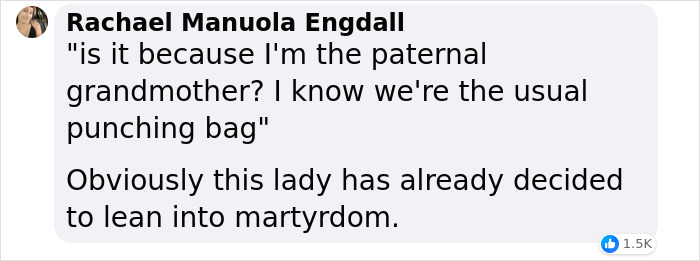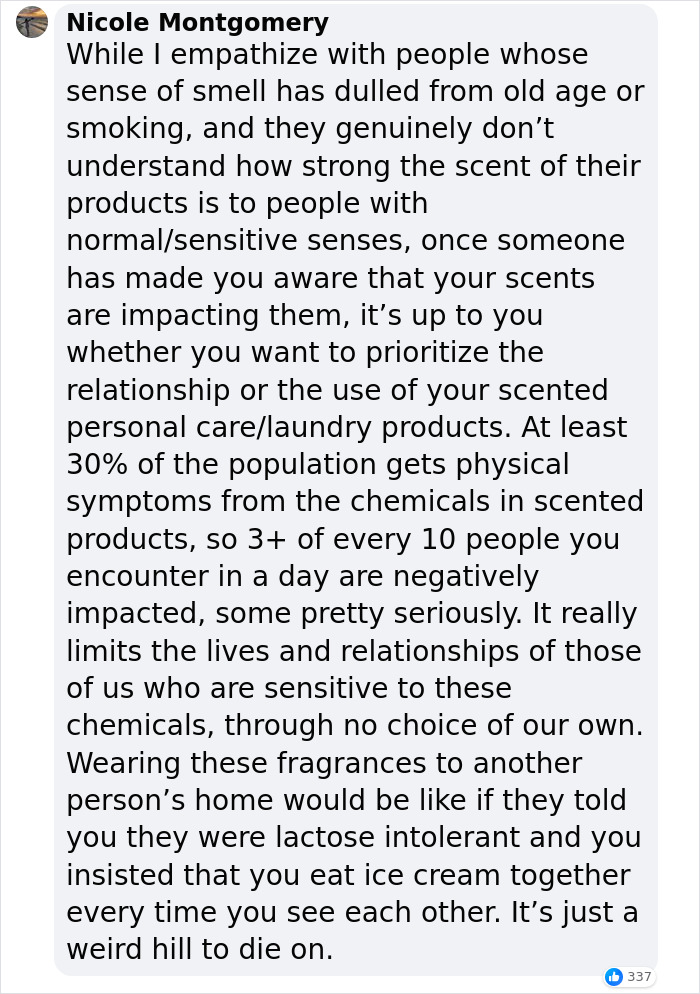
Family Doesn’t Want Grandma To Babysit Anymore Because Of How Her Laundry Smells

Smells are incredibly powerful! They can invigorate us, put us at ease, make us nostalgic for the good old days, or even repulse us. People also have different preferences. Something that we might find pleasant might put someone else off.
An anonymous grandma recently turned to ‘Dear Prudence,’ Slate Magazine’s advice column, looking for help with a sensitive situation in her family. She shared how people usually love the laundry soap she uses. However, her own family has an issue with how strong it smells.
Table of Contents
Scroll down for the story in full.
Daily Trend Blog wanted to learn more about the psychology behind smells, so we got in touch with Michael E. W. Varnum, Ph.D, an associate professor of psychology at Arizona State University and the author of the insightful ‘Unserious Psychology’ blog on ‘Psychology Today.’ He was kind enough to answer our questions.
Some scents can be slightly divisive: some people enjoy them while others have strong negative reactions
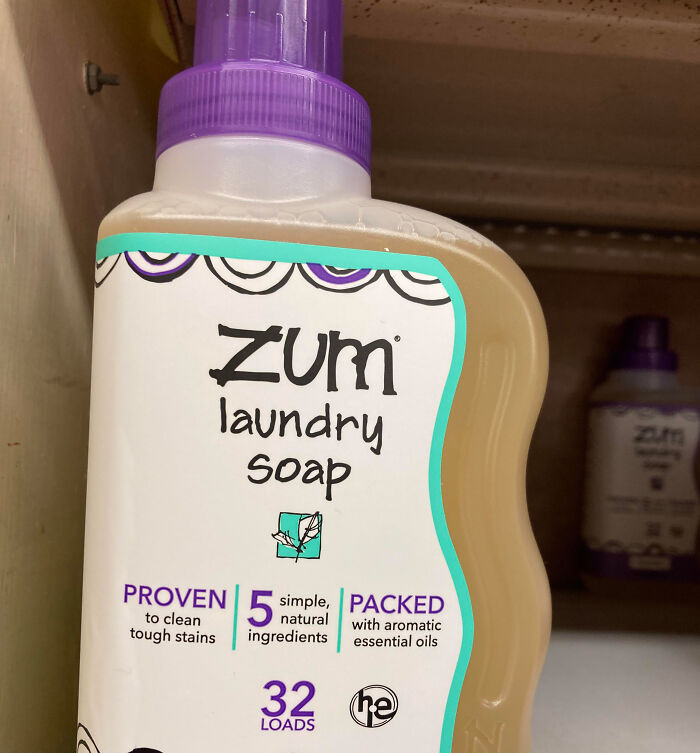
One anonymous grandma turned to an online advice column for help after butting heads with her family over her laundry soap
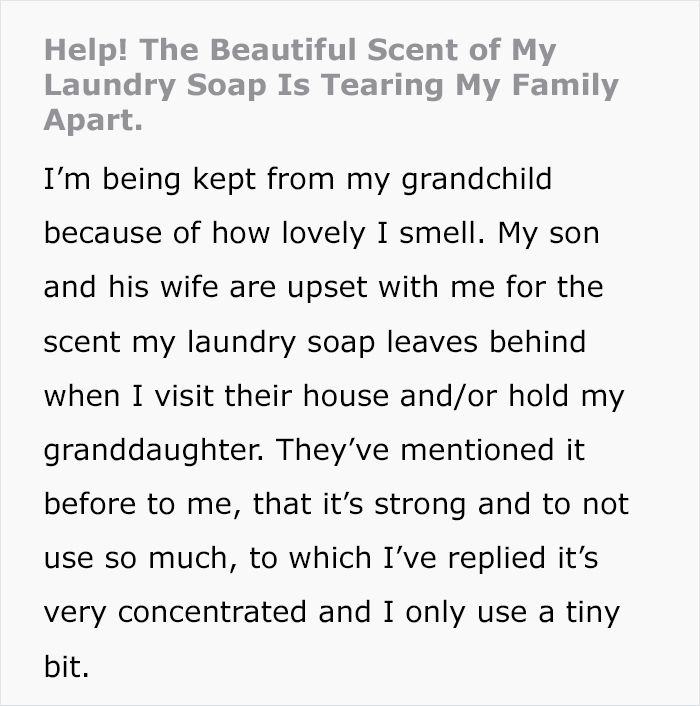
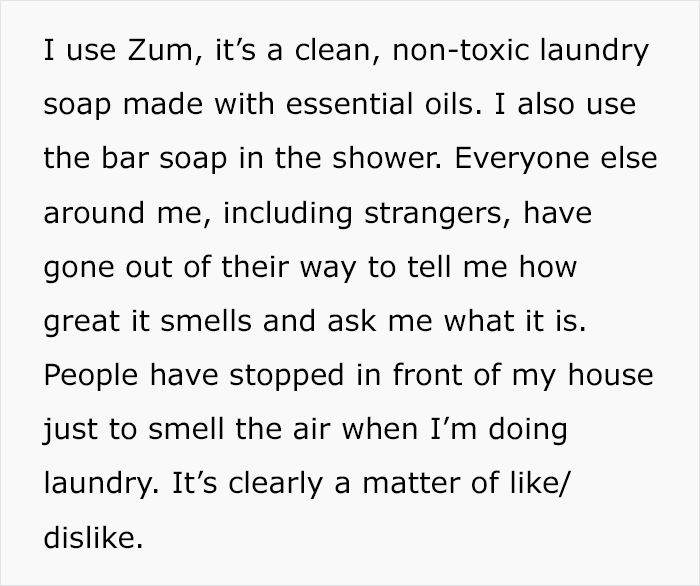
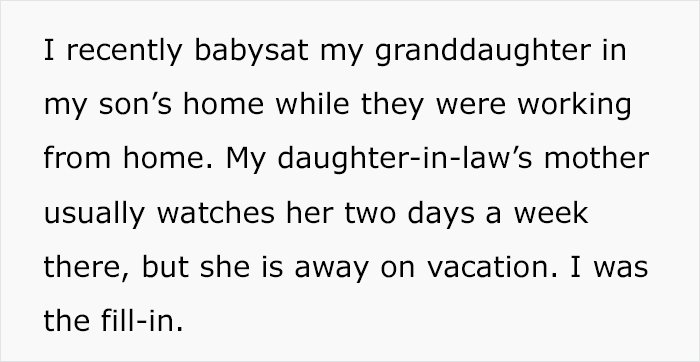
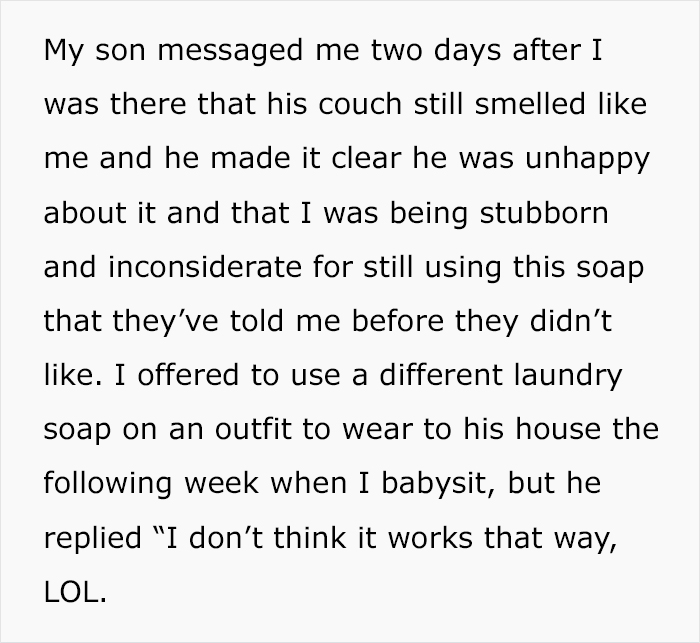
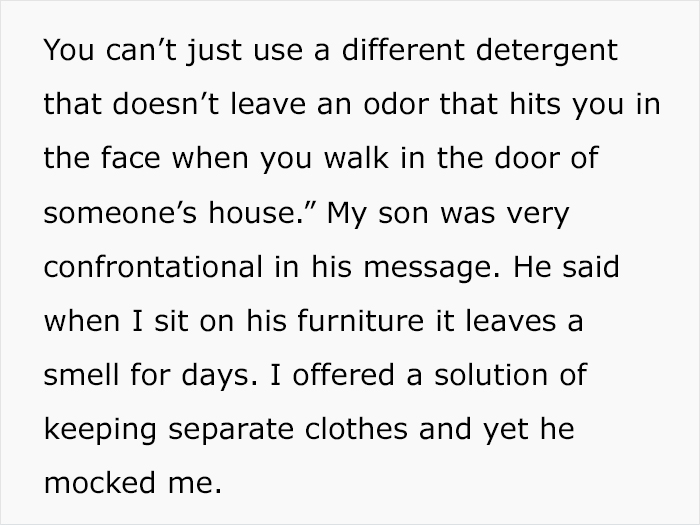

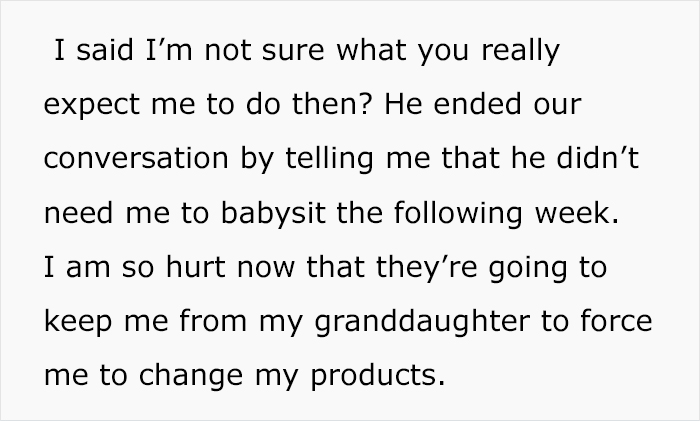
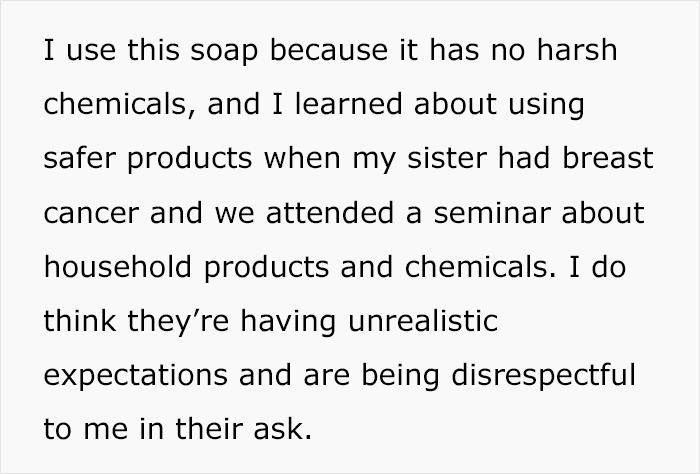
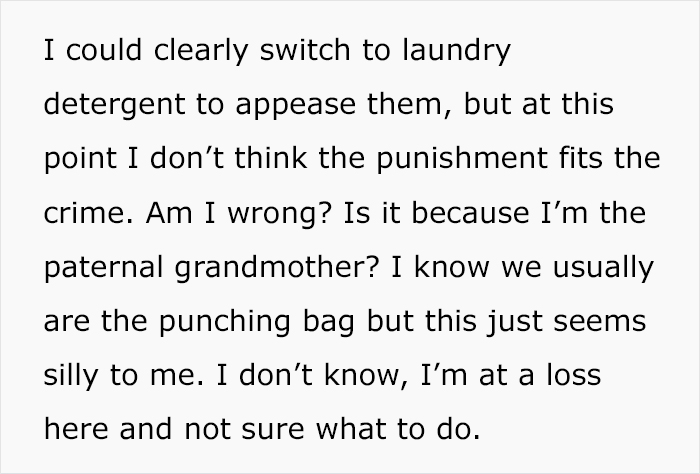
The information encoded in odors was likely incredibly important for our ancestors’ survival and success
Bored Panda asked Varnum why people tend to have such strong reactions to specific smells. He shed some light on this and noted that there are likely a couple of reasons for this.
“We probably evolved to use scent, like other sources of sensory information, to detect recurrent threats and opportunities in our environment that had consequences for our evolutionary fitness and to respond to them in adaptive ways,” he explained to us in an email.
“Certain odors might be cues of pathogens or predators, for example. Others might signal mating opportunities, or food sources, or that people around us are scared,” Varnum said. “Attending to these cues and responding appropriately would have increased the odds of our ancestors’ survival and success.”
He continued: “Another reason is that scents can become associated with other feelings, events, and concepts through learning processes like classical and operant conditioning.”
We were also curious why certain scents might be so divisive, where some people absolutely adore them while others deeply detest them.
Varnum suggested that this may have to do with our personal differences in taste. “Just as there are individual differences in taste, it would make sense that there is also some idiosyncrasy in scent preferences aside from certain fairly universal likes and dislikes shaped by evolutionary forces,” he told Bored Panda.
“Some of this may be due to individual learning history, some perhaps just to the inherent variability in our physiologies or temperament.”
Exposure therapy can help someone get used to unpleasant smells, but it’s a question of whether it’s worth the time and effort
There are two main issues at play here. The first is the actual smell of the laundry soap. Meanwhile, the second one has to do with communicating about unpleasant topics, as well as accepting or pushing back against loved ones’ boundaries.
To start off, we can’t really do much if someone is put off by a particular smell. They might have negative associations with it due to past experiences. Or they might have a deep gut instinct that forces them to react in a negative way.
Exposure therapy or seeing a mental health specialist can help someone get over (a part of) their revulsion to a particular smell. However, this will take a very long time. It’s also going to eat up a lot of energy and even finances.
Getting used to a specific smell only makes sense if it’s going to play a major role in your life and a neutral or even positive reaction is a must in your line of work.
Off the top of our heads, let’s say that you hypothetically hate the smell of coffee. You then get the opportunity to work at a company that produces and sells coffee products. It would make sense for you to get used to the smell of coffee because it will be an integral part of your life.
Now apply the same logic to any other smell, whether that’s petrol, vanilla, roses, cooking oil, meat, etc. At the same time, it would be ridiculously time-consuming to demand a whole group of people to get used to a smell they only encounter very rarely but feel very put off by.
Talking about how someone smells might be incredibly awkward, however, in some cases it’s unavoidable
The right to do was to bring up the issue instead of silently grinning and bearing it. Telling somebody that you do not like how they smell is an incredibly awkward conversation to have. If it’s affecting you and your loved ones, it’s not something that you should avoid.
However, it’s important to consider how you broach the topic. Giving someone an ultimatum about how they won’t be able to babysit their grandkids again may be taking things a bit too far if we’re talking about laundry soap and not egregious body odor. Ultimatums leave very little wiggle room for compromise.
It’s in everyone’s best interests that you’re friendly but firm when you tackle the issue. Be clear about how the other person’s BO is affecting you. However, do consider acknowledging that it might be difficult to talk about. Some people are not aware that they smell ‘bad,’ and all it takes is a gentle nudge to help them.
This might mean replacing their current brand of laundry detergent, deodorant, or perfume/cologne with something that complements them better. It might mean changing their diets, drinking more water, or seeing a doctor. Or, it may mean that they need to wash themselves more frequently and more attentively and take better care of their clothes.
According to Dr. Valerie Curtis, who led a study conducted at the London School of Hygiene and Tropical Medicine, some things universally provoke our disgust. Among them are smelly things like rotting meat and bodily excretions, the BBC reports.
Though not all researchers agree that disgust is “hard-wired into our genes,” Dr. Curtis’ research supported the theory that we’ve evolved the response of disgust to protect us against infection.
Here’s what some internet users had to say about the woman’s anonymous post
